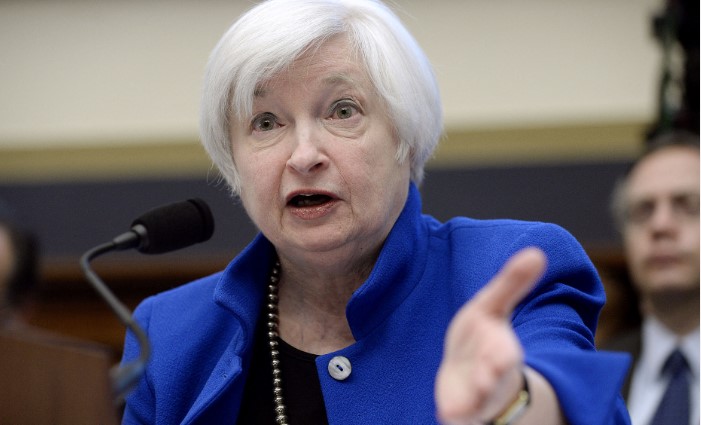Virendra Pandit
New Delhi: Treasury Secretary Janet Yellen has, in a letter to the US Congress, warned that, because of its failure to raise the government’s borrowing limit of USD 31.4 trillion and the resulting default, the country is facing a financial crisis and could run out of cash to pay its bills as early as June 1.
The urgency forced President Joe Biden to call a meeting on May 9 with the top congressional leaders to find a solution to the problem. Next week, he is meeting House Democratic leader Hakeem Jeffries, Senate Majority Leader Chuck Schumer, and Republican leader Mitch McConnell to discuss the issue at the White House, and insisted that he will not negotiate over the debt ceiling increase, but will discuss budget cuts after a new limit is passed.
According to media reports, the new estimates of losses have increased the risk of an unprecedented default that could have a significant impact on the global economy. The situation has added new urgency to political calculations in Washington, and negotiations between Democrats and Republicans about raising the debt limit could be lengthy.
In similar situations in the past, solutions included pairing debt-ceiling increases with other budget and spending measures. House Republicans have already passed a bill to raise the debt limit, including cuts to spending, which Democrats refused to approve.
The new potential “X-date” which considers April tax payments, is similar to a previous estimate issued in January that predicted the government could run out of cash by June 5. However, Yellen’s letter added that federal receipts and outlays are “inherently variable” and the actual date Treasury exhausts extraordinary measures “could be a number of weeks later than these estimates.”
Experts want an early solution to avoid damaging the US economy. In 2011, a similar borrowing limit fight almost led to a default and prompted a downgrade of the country’s top-notch credit rating. With negotiations likely to be even more difficult this time, the stakes are high.
Earlier also, Yellen had warned that a US default on the debt would trigger an ‘economic catastrophe’ that would push up interest rates higher for many years. It would throw many people out of their jobs, drive household payments on mortgages, and auto loans and credit cards would become scary.
She said it was a “basic responsibility” of the US Congress to increase or suspend the USD 31.4 trillion borrowing cap, warning that a default would threaten the United States’ economic progress.
“A default on our debt would produce an economic and financial catastrophe,” Yellen told the members of the Sacramento Metropolitan Chamber of Commerce. “A default would raise the cost of borrowing into perpetuity. Future investments would become substantially more costly.”
If the debt ceiling is not raised, US businesses will face deteriorating credit markets, and the government might be unable to issue payments to military families and seniors who rely on Social Security, she said.
“The US Congress must vote to raise or suspend the debt limit. It should do so without conditions. And it should not wait until the last minute.”
In January also, she told lawmakers the government could pay its bills only through early June without increasing the limit, which the government hit in January.
Unlike most other developed countries, the US puts a hard limit on how much it can borrow. Because the government spends more than it takes in, lawmakers must periodically raise the debt ceiling.
Kevin McCarthy, leader of the Republican-controlled House of Representatives, last week floated a plan that would twin USD 4.5 trillion in spending cuts with a USD 1.5 trillion increase in the debt cap, calling it the basis for negotiations in coming weeks.
The White House insists the two issues should not be linked, and the Democratic-controlled Senate is likely to reject the proposal.
Financial markets are growing increasingly concerned about the standoff, sending the cost of insuring exposure to US debt to its highest level in a decade, with financial analysts warning about the increasing risk of default.

